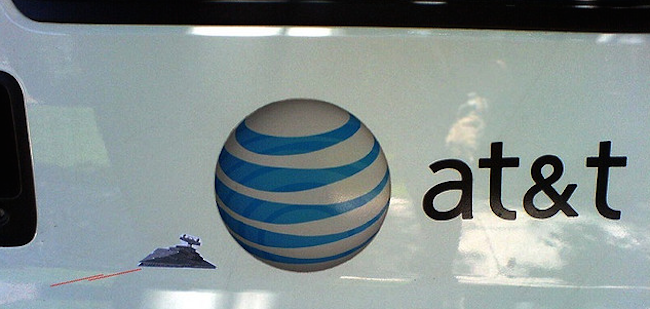AT&T Fails At Getting FTC’s Throttling Lawsuit Dismissed
In a classic case of telecom companies trying to have their regulatory cake and eat it too, AT&T argued that its status as a “common carrier” exempts it from regulation under the FTC Act. Instead, it claimed, any complaint about data throttling would have to be brought by FCC, which regulates common carriers.
Even though the FCC recently voted to approve new net neutrality guidelines that reclassify wireless data as a common carrier, at the time the lawsuit was filed — and during the timeframe in which the allegedly misleading actions took place — mobile data was not considered a common carrier.
AT&T has maintained that because its wireless voice service was regulated as a common carrier, then it was covered by the exception.
But in his ruling [PDF], the judge holds that the point of the exception wasn’t to prohibit the FTC from regulating all commercial activities of common carriers, but from involving itself in the actual carriage of that service.
Since the FTC isn’t suing about the fairness of the throttling practice itself, but about AT&T’s alleged failure to clearly disclose its throttling policy to customers, the judge says this is not an issue of regulatory overlap.
“AT&T has pointed to no instance where a Federal Communications Commission regulation requires conduct which would violate a FTC regulation or vice-versa,” reads the ruling. “Contrary to what AT&T argues, the common carrier exception applies only where the entity has the status of common carrier and is actually engaging in common carrier activity.”
With regard to the recent reclassification vote by the FCC — which has still yet to take effect and which is already being challenged in the courts — AT&T argues that the decision to reclassify and regulate mobile data as a common carrier takes away the FTC’s jurisdiction in this matter.
The FTC contends that this is about past bad actions, so it doesn’t matter whether mobile broadband is ultimately reclassified or not. Additionally, while the FCC is seeking its own sanctions against AT&T’s throttling program, that agency lacks the authority to bring a lawsuit seeking customer refunds for actions that happened several years ago.
“When this suit was filed, AT&T’s mobile data service was not regulated as common carrier activity by the Federal Communications Commission,” concludes the ruling. “Once the Reclassification Order of the Federal Communications Commission (which now treats mobile data serve as common carrier activity) goes into effect, that will not deprive the FTC of any jurisdiction over past alleged misconduct as asserted in this pending action.”
In response to the court’s ruling, a spokesperson for AT&T tells Consumerist, “We’re obviously disappointed in, and disagree with, the decision and will seek to appeal it as soon as possible.”
Want more consumer news? Visit our parent organization, Consumer Reports, for the latest on scams, recalls, and other consumer issues.


